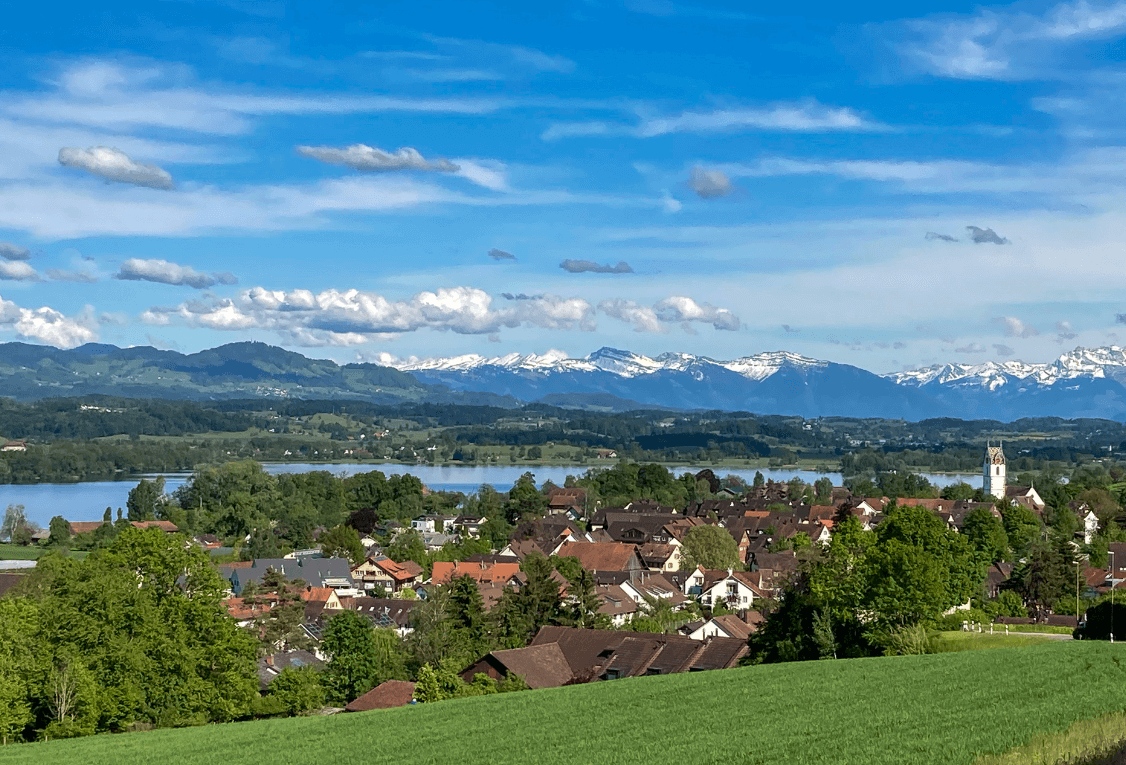To Combat Climate Change We Must Enlist the Rich

Greetings friends!
When I write about sustainability, it is usually to point out climate alarmists’ errors in thinking and misbegotten strategies. It’s easy to point out problems, though. I know the true value lies in devising pragmatic solutions that would work.
In that spirit, I set out ways here to effectively address climate change by enlisting the help of the global one-percenters.
- Although these proposals would significantly reduce CO2 and start to turn the tide on climate change, I predict some readers will summarily reject them.
- If you find yourself doing so, you might ask what this says about your true concerns — is it the climate you’re genuinely worried about or something else?
First off, who makes up the global elite?
To be in the global one percent, one needs to have a wealth of $1 million or more. See How Does Your Wealth Stack Up for more on the global distribution of wealth.
Most of the world’s millionaires are in the United States. Because the U.S. is disproportionately wealthy compared to other countries, a person in the top 5% in the U.S. is still handily among the global top one percent. We’ll thus use the top 5% of Americans as our case studies for how to drive effective climate change initiatives.
And because we’re going to talk about taxes, we need to look at how much income a person has to earn to be counted among the elite. Income is different than wealth, and you need a fair bit of it to be in the top 1% and 5%. (N.B., I’ve taken the following details about U.S. elites from the most recent tax filing data from the Internal Revenue Service for the year 2021.)
- A household needed an annual income of $682,577 to be in the top 1% of all tax returns filed. This represented 1.54 million returns of the more than 154 million returns filed that year.
- To be in the top 5% of all returns required about a quarter of a million dollars of income ($252,840), a threshold some 7.7 million filers crossed.
- The top 5% of taxpayers in the U.S. paid fully two-thirds (65.6%) of all federal taxes paid. See this Tax Foundation report for a helpful summary of who pays what taxes in the U.S.

Why we need the global elite to combat climate change
Without the one-percenters, no meaningful change will occur. That’s because they pay the great majority of all taxes. They also have an outsized influence on how that money is spent because their campaign contributions and lobbying help drive election results and legislative priorities.
Even thoughtful, constructive people take the easy path of bashing the rich.
I can tell you this categorically: Vilifying the rich is counterproductive. If we want them to be our allies in combatting climate change, calling them devils for their selfishness and excess consumption is short-sighted.
Showing antagonism towards the rich is especially misguided because it sets average people up as their enemies. When the wealthy hear that non-one-percenters think (a) the rich are evil for having been successful and (b) the rich should pay even more in taxes to bail out the people who hate them, you can imagine the reaction behind closed doors.
Here’s a wonderfully simple alternative: Craft incentives that make solving climate change appealing to one-percenters (details below). And for heaven’s sake, show some gratitude for their contributions, or at least pretend it.
Ways to dramatically reduce CO2 the wealthy would support
If reducing CO2 emissions is our goal, here’s how we can enlist the wealthy in making it happen: Tax carbon-generating activities at such a high level that only the well-off can afford them.
We would not forbid those activities or restrict them to anyone. Rather, for the plan to work, we must treat those activities as highly desirable status symbols, such that wealthy people would still pursue them.
Although far fewer people would engage in these activities compared to today (thus reducing CO2 emissions dramatically), the outrageous taxes would raise massive amounts of money to fund the necessary adaptations in lifestyle for the non-one-percenters.
The primary sources of greenhouse gas emissions are transportation (cars, ships, planes), electricity production, industry (production of goods), commercial and residential buildings (heating and cooling), and agriculture (livestock).
Our carbon taxes would correspondingly look as follows. (Note, the numbers are just placeholders for illustration. They are probably too high at these levels, but it helps get the point across.)
- Cars would be taxed at 500% of the value of the vehicle upon purchase and $100 per mile driven. That $100,000 luxury sedan would cost $500,000 in taxes to buy and driving it 10,000 miles would cost another $100,000.
- Air travel would be taxed at $20,000 per ton of CO2 emitted. That commercial flight from New York to Europe would now cost $40,000 per person, each way. Private travel would be even more costly.
- Food would be taxed at a rate reflecting carbon emissions in the value chain — both growing it and shipping it to the point of sale. Aim for a tripling in the cost of most products. Meat products would have a special methane gas surcharge of 1,000%. Anyone can still buy meat, but when it costs $5,000 for a steak, expect far fewer people to do so.
- Housing would be subject to strict requirements of carbon neutrality. Noncompliant homes would be taxed at a rate of 20% of their value per year. If your $500,000 home does not have the highest energy-efficiency rating and HVAC system, you would pay $100,000 per year until you retrofit it. Second homes would be taxed at a rate of 50% of their value.

Some expected consequences of these carbon taxes
The most important effect would be dramatically lower carbon emissions. Far fewer people would drive, fly, eat meat or non-locally produced food, or live in wasteful homes. Those few who did would pay handsomely for the privilege.
That’s what we all want, right? Urgent action that has a meaningful impact on runaway CO2 emissions?
There would of course be disruptions. Many non-wealthy people would still have to drive, fly places, and live in sub-optimal housing. They could only do so with massive subsidies made possible by the voluntary contributions of the wealthy in the form of these new taxes.
Would you sign up for this solution?
If the solution to climate change was for all of us but the wealthy to eat locally, walk places, and take no vacations to places we could not bike to, would we do it?
How much does it matter to us that some wealthy people would be able to do things others could not, even though their cost of doing so paid for the transition?
Be well.
If you’d like to be presented with thought pieces that live up to the name, subscribe to read more.






Member discussion